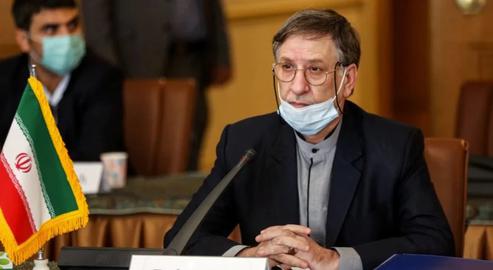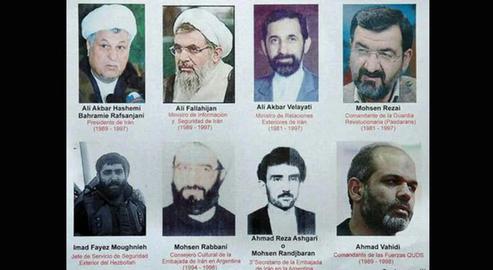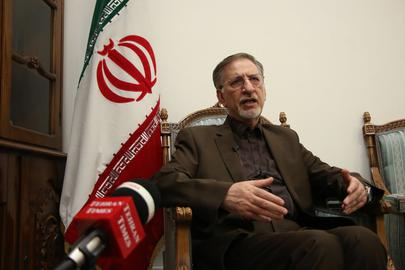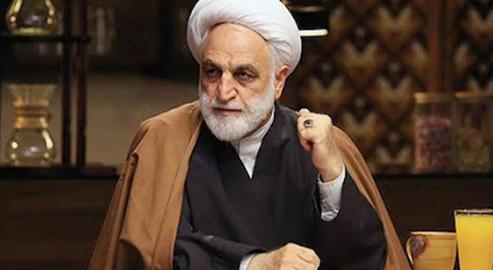A 55-year-old Iranian diplomat, Mohsen Baharvand, has been appointed as the Islamic Republic’s ambassador to United Kingdom – or formally, to the Court of St. James’s.
Iranian ambassadors are usually selected by the foreign ministry and are approved by the president. But in the past 32 years under the Supreme Leader Ali Khamenei, those due to be dispatched to some of the most important missions – such as London, Paris and the UN in New York – are never appointed without Khamenei’s approval as well.
Baharvand is an experienced diplomat and in the early 2010s, was the official that Khamenei agreed to send to Oman for secret nuclear negotiations with senior US State Department officials. At the time, Baharvand was Deputy Foreign Minister for American Affairs. Years later he would also be sent to Argentina to address one of the biggest disasters of the Islamic Republic’s own making.
The Terrorist Attack on the Jewish Center in Buenos Aires
On July 18, 1994, a car bomb destroyed the seven-storey building of the Argentine Israelite Mutual Association (AMIA) in Buenos Aires, killing 85 people and injuring hundreds of others. A number of senior officials, from then-President Akbar Hashemi Rafsanjani and two members of his cabinet, Foreign Minister Ali Akbar Velayati and Intelligence Minister Ali Fallahian, to officials at the Iranian embassy in Buenos Aires, were indicted by Argentina for their part in the terror attack.
Hadi Soleimanpour, Iran’s ambassador to Argentina at the time, was later arrested in the UK at the request of the Argentinian government. Britain did not extradite him to Argentina but his temporary detention showed the seriousness of the AMIA case in the eyes of the international community. Implicated in this terrorist act was also Lebanese Hezbollah, a paramilitary proxy for Iran, some of whose senior officials were also charged.
After 2011, when Ali Akbar Salehi was appointed foreign minister by President Mahmoud Ahmadinejad, the Islamic Republic took various measures to extricate itself from the AMIA case. At the time a friendly government was at the helm in Argentina and the Iranian foreign ministry was under the impression that it was an opportune time to try and close the case.
The Iranian negotiator in the talks was Baharvand. He was on the verge of signing a highly controversial letter of understanding with the Argentinian government to close the case – but, with the change of the government in Buenos Aires and the sudden death of Alberto Nisman, the prosecutor in the AMIA case, it once again became a national priority.
In the end, Baharvand did not succeed. But he had done his best to absolve the Islamic Republic of Iran of responsibility of its oldest international terrorist cases. It was after this mission that he was sent to Oman for secret negotiations with the Americans: talks that only became public knowledge years later, after Hasan Rouhani assumed the presidency and signed the nuclear agreement or the JCPOA (the Joint Comprehensive Plan of Action).
Prisoner Exchange with Donald Trump
Baharvand was also the Iranian negotiator during secret talks with the Donald Trump administration about prisoner exchanges. He attended a short meeting in Switzerland with Brian Hook, US State Department’s Special Representative for Iran, which led in 2019 to the US releasing Masoud Soleimani, an Iranian scientist who had charged with violating trade sanctions, in exchange for Xiyue Wang, a Chinese American graduate student who had been detained in Iran since 2016.
The Islamic Republic faced yet another international crisis when the Revolutionary Guards shot down a Ukrainian Airlines passenger jet over Tehran in January 2020, killing all 176 passengers and the crew. For three days Iranian officials tried to evade accountability but eventually, under pressure from Ukraine and Canada, the Revolutionary Guards were forced to accept responsibility for the incident.
The task of resolving this case was placed on the shoulders of Mohsen Baharvand, who was by now Deputy Foreign Minister for Legal and International Affairs. In this role, Baharvand repeatedly used threatening in response to protesters against the PS752 atrocity, and to objections to repeated broken promises by the Islamic Republic.
During one meeting with Ukrainian officials in Tehran, some of the victims’ families had gathered outside the foreign ministry. In a bid to calm those who demanding the arrest of General Amir Ali Hajizadeh, commander of the Guards’ Aerospace Force, Baharvand came down and tried to talk to them. The protesters told him they did not want him and asked instead for the Ukrainian deputy foreign minister inside the building.
The Stumbling Block: Nazanin Zaghari-Ratcliffe
Now Mohsen Baharvand is set to meet Queen Elizabeth II in Buckingham Palace to present his credentials and begin his mission in Britain. These documents are signed by President Rouhani but would have not been issued without Ayatollah Khamenei’s approval.
Baharvand is the second ambassador the Islamic Republic has sent to Britain in the past decade. His predecessor Hamid Baeidinejad was a senior nuclear negotiator and in 2016, when he arrived in London, the Islamic Republic was hoping for better relations with the UK – but there was not so much as one official meeting between Iranian Foreign Minister Zarif and his British counterpart in London. Zarif did visit Britain once, but only on the invitation of an international gathering.
The ongoing imprisonment of British-Iranian dual national Nazanin Zaghari-Ratcliffe, who appears to be being held hostage over the debt owed by the UK to Iran for undelivered military equipment purchased in the Shah’s time, is a serious obstacle to any improvement in relations between the two countries.
When Hamid Baeidinejad left London, he strove to whitewash his government’s record and had no qualms about telling outright lies and even publicly threatening Persian-language media outlets in Britain. His successor Mohsen Baharvand, however, will not need to exert much effort in order to do the same, as he has always been like this.
Related coverage:
Iran-UK Debt Dispute Keeps Nazanin in Jail
Iran releases American graduate student in prisoner swap
100 Days after Killing 176 Passengers, Iran Still Refuses to Hand Over Flight Recorder
Cover-ups, Clashes, and Iran-Argentina Relations: The Mysterious Death of Alberto Nisman
Threats, Explosives and the Tri–Border Area: The Shadow of Hezbollah Over Argentina
visit the accountability section
In this section of Iran Wire, you can contact the officials and launch your campaign for various problems




























comments